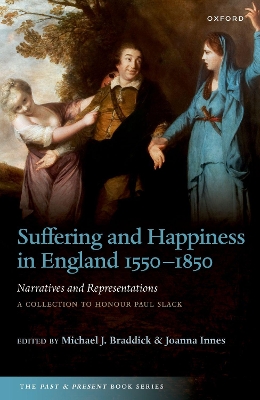The Past & Present Book
2 total works
Inferior Politics explores how social policy was created in Britain in a period when central government was not active in making it. Parliament proved capable of generating national legislation nonetheless-and provided a forum for debate even when it was impossible to mobilise consensus behind any particular plan. In this setting, there was a lively, and surprisingly inclusive, 'politics' of social policy-making, in which 'inferior' officers of government
(what we might call 'local authorities') figured prominently.
The book explores institutional structures which shaped these debates and their outcomes, and supplies several case studies of policy-making: one focussing on some of the less well-known activities of William Wilberforce, as he attempted to promote a national 'reformation of manners'; others featuring such apparently marginal figures as imprisoned debtors and a lowly (and bigoted) London constable. A central chapter explores the history of social and economic empirical enquiry from the
invention of 'political arithmetic' in the later seventeenth century through to the first census of 1801, detailing similar interaction between government and private enthusiasts.
Drawing together three decades of the author's work, including two new essays, Inferior Politics demonstrates how Joanna Innes has significantly revised and extended our understanding of the ways and means of British domestic government, in an era marked by institutional continuity but continuing and vigorously debated social challenges.
(what we might call 'local authorities') figured prominently.
The book explores institutional structures which shaped these debates and their outcomes, and supplies several case studies of policy-making: one focussing on some of the less well-known activities of William Wilberforce, as he attempted to promote a national 'reformation of manners'; others featuring such apparently marginal figures as imprisoned debtors and a lowly (and bigoted) London constable. A central chapter explores the history of social and economic empirical enquiry from the
invention of 'political arithmetic' in the later seventeenth century through to the first census of 1801, detailing similar interaction between government and private enthusiasts.
Drawing together three decades of the author's work, including two new essays, Inferior Politics demonstrates how Joanna Innes has significantly revised and extended our understanding of the ways and means of British domestic government, in an era marked by institutional continuity but continuing and vigorously debated social challenges.
Suffering and Happiness in England 1550-1850: Narratives and Representations
by Michael J. Braddick and Joanna Innes
Published 27 October 2022
Suffering and Happiness in England 1550-1850 pays tribute to one of the leading historians working on early modern England, Paul Slack, and his work as a historian, and enters into discussion with the rapidly growing body of work on the 'history of emotions'. The themes of suffering and happiness run through Paul Slack's publications; the first being more prominent in his early work on plague and poverty, the second in his more recent work on conceptual
frameworks for social thought and action. Though he has not himself engaged directly with the history of emotions, assembling essays on these themes provides an opportunity to do that. The chapters explore in turn shifting discourses of happiness and suffering over time; the deployment of these discourses for
particular purposes at specific moments; and their relationship to subjective experience. In their introduction, the editors note the very diverse approaches that can be taken to the topic; they suggest that it is best treated not as a discrete field of enquiry but as terrain in which many paths may fruitfully cross. The history of emotions has much to offer as a site of encounter between historians with diverse knowledge, interests, and skills.
frameworks for social thought and action. Though he has not himself engaged directly with the history of emotions, assembling essays on these themes provides an opportunity to do that. The chapters explore in turn shifting discourses of happiness and suffering over time; the deployment of these discourses for
particular purposes at specific moments; and their relationship to subjective experience. In their introduction, the editors note the very diverse approaches that can be taken to the topic; they suggest that it is best treated not as a discrete field of enquiry but as terrain in which many paths may fruitfully cross. The history of emotions has much to offer as a site of encounter between historians with diverse knowledge, interests, and skills.

